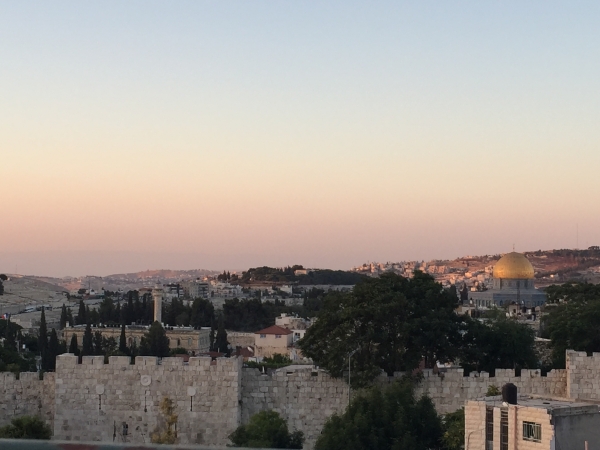Recently, I was given an opportunity by John Paul Pilgrimages and Tours to embark on a journey with other believers from the Diocese of Phoenix to the Holy Land. This opportunity, like so many others, came at a moment when I needed it most and fit like a puzzle piece into God’s plan for my life. So after 24 hours of travel time, I found myself at the heart of Christendom in the Holy City of Jerusalem.
There was an abundance of blessings I received on the trip, many of them unexpected. I chose to go on this pilgrimage, a religious journey, because I desired healing in my life, needed to know the unfathomable mercy of God and rest in the knowledge that I am irrevocably loved by God. They were high expectations, but the Lord chose to meet every single one of them.
Walking in the footsteps of Jesus - that’s what the journey was all about. But I did it in a nation divided, so while I paced the Mount of Beatitudes contemplating our Lord’s words, “Blessed are those who mourn, for they shall be comforted. (Mat 5:4)”- I looked at a land divided by religious and political difference. I encountered mourning.
It can be a temptation to look at someone and only see the ways they aren’t like us. It can be a temptation to want to build a utopian society. But the Incarnation - God made Man - tells us that Perfection entered a very imperfect world and “dwelt among us.”
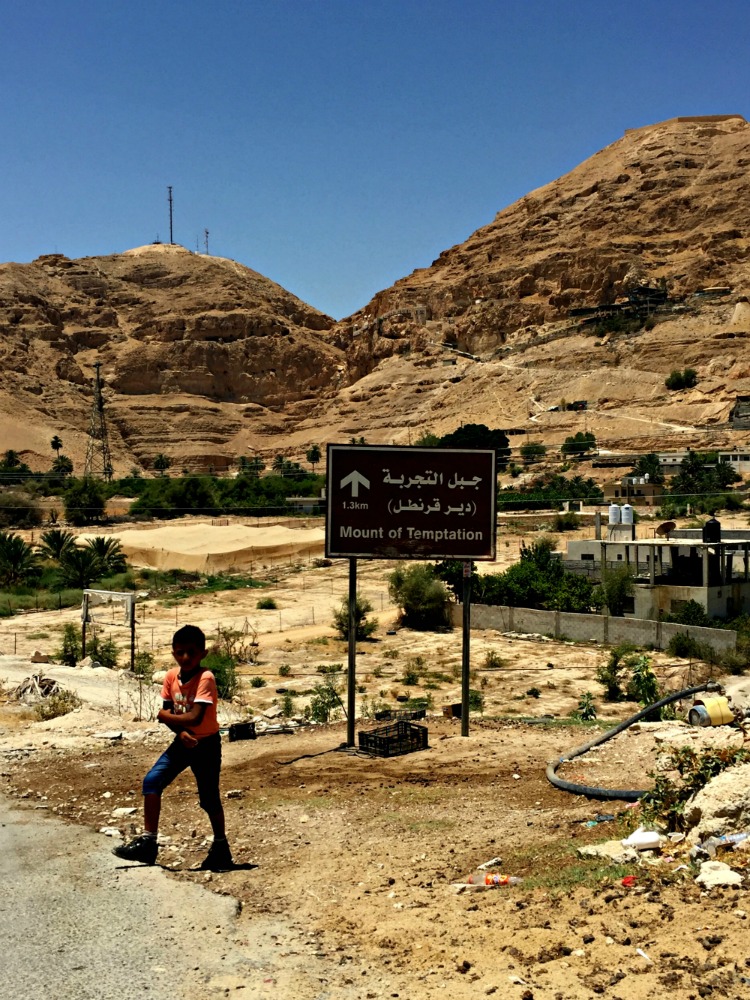
The Mount of Temptation where Jesus prayed and fasted for 40 days.
Sometimes it’s easy to see the hurt we have experienced and not recognize that same hurt in the face of others around us in our families, in our community. So we build walls. Sometimes we build real, tall, concrete gray walls with barbed wires to separate one nation from another, but more often I think we build them around our hearts to separate us from those who aren’t like us. But those faces, those human faces that experience the same sorrows and joys as we do, are actually the face of Christ.
I pondered this reality throughout my trip as I thought about the work we do at Catholic Charities and why we do what we do. Mother Teresa used to reiterate to her sisters, “We are not social workers.” Here at Catholic Charities, many of us are social workers and we are a social service organization. But it doesn’t begin or end there. “The human person…is and ought to be the principle, the subject and the end of all social institutions.” (GS 25, 1)
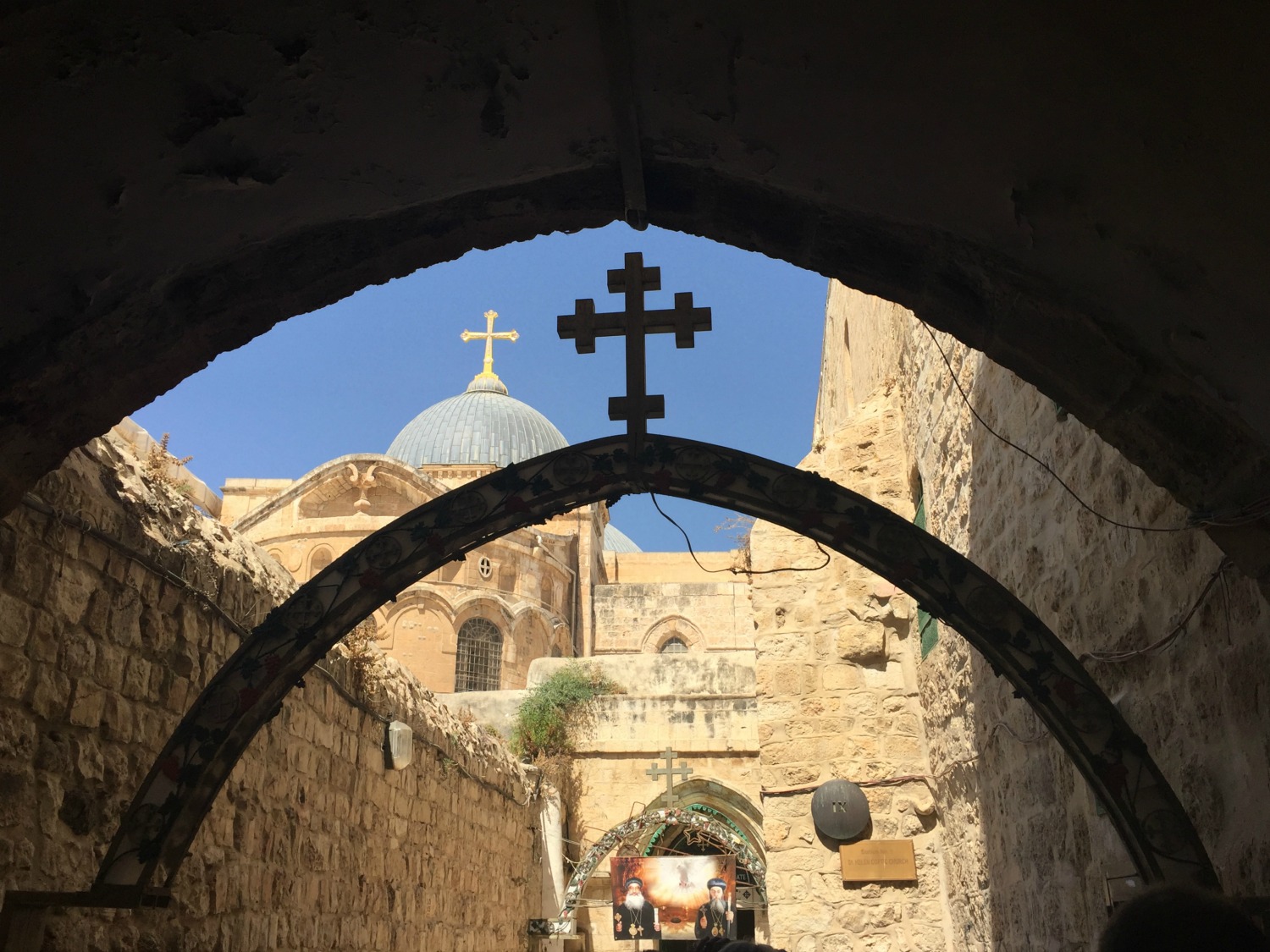
The Church of the Holy Sepulchre, where Jesus was crucified and placed in the tomb.
The difference is always in the why. Why do we do what we do? We help our community’s most vulnerable, because the Gospel calls us on, challenging us to see the face of Christ and to walk in His footsteps in recognizing Him in others, regardless of background or belief. But we can only do that through conversion; conversion of our own hearts leads to conversion of society and allows us to break down walls so we can walk in each other footsteps.
My heart is full of gratitude for the gift of being able to retrace the footsteps of Christ, because it reminded me of the need to walk in the footsteps of my neighbor, “Love of neighbor is inseparable from Love of God.” (CCC1878). It taught me the importance of breaking down walls in order to see faces- the faces of the most vulnerable among us- and to serve them because by serving them, we are serving Christ. And I’m blessed to do that every day at Catholic Charities.
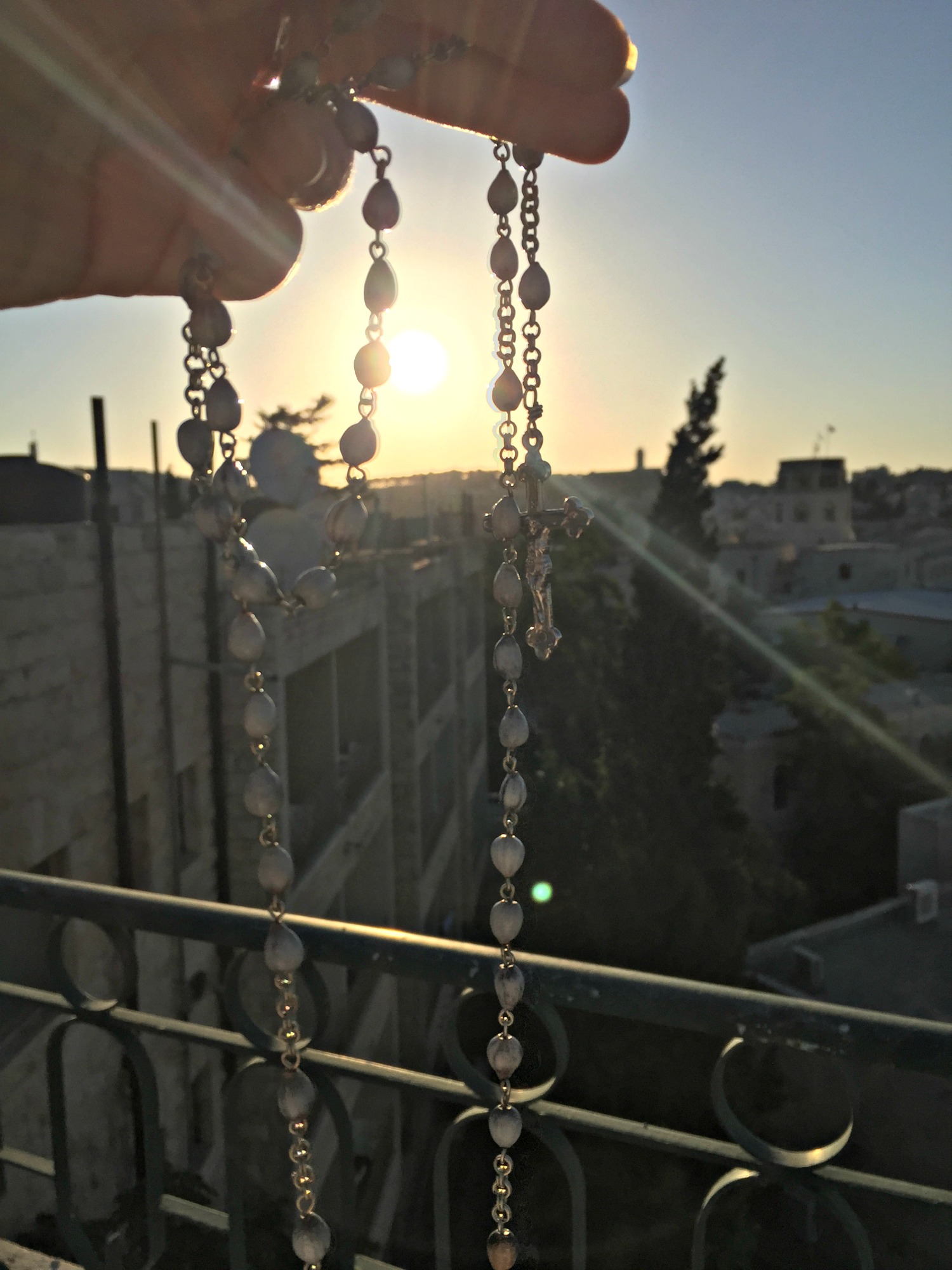
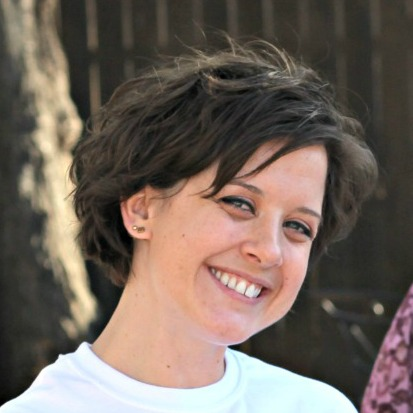 Brittany Allen is the Events & Community Engagement Coordinator for Catholic Charities. New to Catholic Charities, she recently returned from a year of serving vulnerable populations in the Bronx and East Harlem, New York. A graduate of Northern Arizona University, she has enjoyed roles in the non-profit field related to program development, events, and outreach. She is passionate about furthering the mission of Catholic Charities by engaging the wider community to become involved in serving the most vulnerable.
Brittany Allen is the Events & Community Engagement Coordinator for Catholic Charities. New to Catholic Charities, she recently returned from a year of serving vulnerable populations in the Bronx and East Harlem, New York. A graduate of Northern Arizona University, she has enjoyed roles in the non-profit field related to program development, events, and outreach. She is passionate about furthering the mission of Catholic Charities by engaging the wider community to become involved in serving the most vulnerable.


